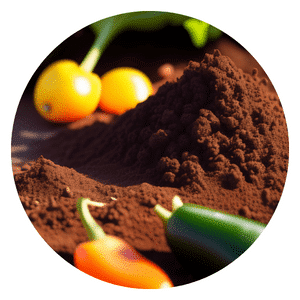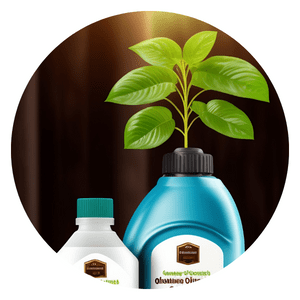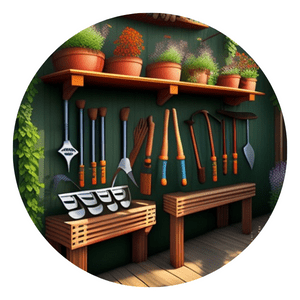How to Start a Vegetable Garden For Beginners
Starting a vegetable garden can be an exciting and rewarding experience.
Not only do you get to enjoy having fresh vegetables right in your own backyard, but you also get the satisfaction that comes from growing your own food.
Whether you’re just starting out or have some gardening experience, this article will guide you through the basics of how to start a successful vegetable garden.
Here, we’ll discuss what tools are necessary, what plants to choose, and how to care for your garden.
Organic Gardening Menu
Planning Your Vegetable Garden
Planning your vegetable garden is a crucial step in ensuring a successful harvest.
Here are some guidelines to help you get started:
Choose the right location:
The ideal location for a vegetable garden is a spot that receives at least 6 hours of direct sunlight each day.
Look for an area that is sheltered from strong winds, and has well-draining soil.
Decide on the size of your garden:
Consider the amount of space you have available, as well as your level of commitment.
It’s better to start with a small garden and expand as you gain experience, rather than starting too big and feeling overwhelmed.
Determine what vegetables to grow:
Consider your family’s eating habits and choose vegetables that are easy to grow and that you enjoy eating. You can also consider growing herbs or fruits.
Test the soil:
Before planting, test your soil to determine its pH and nutrient levels.
This will help you determine what amendments, if any, you need to add to improve the soil quality.
Add organic matter:
Organic matter such as compost, manure, or shredded leaves can help improve the soil structure, increase water retention, and provide nutrients for your plants.
Create raised garden beds:
Raised garden beds are a popular option for vegetable gardening, as they can help improve soil drainage, provide better access for planting and maintenance, and can be easier on your back.
Remember to choose organic gardening methods to ensure the health and sustainability of your garden.
Preparing the Soil
Preparing the soil is an essential step in creating a healthy and productive vegetable garden.
Here are some tips and examples from organic gardening to help you prepare your soil:
Test the soil:
Before planting, it’s important to test your soil to determine its pH level and nutrient content.
You can purchase a soil test kit or send a sample to a soil testing laboratory.
The results will help you determine what amendments you need to add to improve the soil quality.
Add organic matter:
Adding organic matter to your soil is an excellent way to improve soil structure, increase water retention, and provide nutrients for your plants.
Some examples of organic matter include compost, manure, leaf mold, and grass clippings.
Use cover crops:
Cover crops, also known as green manure, are plants that are grown specifically to improve soil health.
They can help prevent erosion, suppress weeds, and add nutrients to the soil. Examples of cover crops include clover, vetch, and buckwheat.
Mulch your garden:
Mulching your garden can help retain moisture, suppress weeds, and regulate soil temperature.
Some examples of organic mulches include straw, leaves, and grass clippings.
Avoid synthetic fertilizers and pesticides:
Organic gardening practices involve avoiding the use of synthetic fertilizers and pesticides, which can harm beneficial soil organisms and wildlife.
Instead, consider using natural fertilizers such as compost and manure, and controlling pests and diseases through crop rotation, companion planting, and natural predators.
By preparing your soil with organic matter and using natural methods to improve soil health, you can create a sustainable and productive vegetable garden that provides you with healthy, fresh produce.
Planting Your Vegetables
Planting your vegetables is a crucial step in ensuring a successful harvest.
Here are some tips and examples from organic gardening to help you plant your vegetables:
Choose seeds or seedlings:
When choosing seeds or seedlings, consider the planting season and the climate in your area.
Choose varieties that are adapted to your region and that are disease-resistant.
Consider purchasing organic and heirloom seeds, which can be a more sustainable and flavorful choice.
Proper spacing and planting depth:
Follow the planting instructions on the seed packet or plant tag to ensure that your vegetables are planted at the proper depth and spacing.
This will help prevent overcrowding and competition for nutrients, and will give your plants room to grow.
Watering and fertilizing:
Water your vegetables regularly, aiming to keep the soil consistently moist but not waterlogged.
Consider using a drip irrigation system or a soaker hose to conserve water and reduce the risk of disease.
For fertilization, consider using natural options such as compost or manure.
Companion planting:
Companion planting is the practice of planting certain vegetables together to enhance growth and deter pests.
Some examples of companion planting include planting marigolds with tomatoes to deter nematodes, or planting basil with peppers to repel aphids.
Crop rotation:
Crop rotation is the practice of rotating your vegetables each season to help prevent the buildup of pests and diseases.
For example, avoid planting tomatoes in the same spot each year, and instead rotate them with other crops such as beans or cucumbers.
Remember to choose organic gardening methods to ensure the health and sustainability of your garden.
Start your garden with some soil, Have the right attitude and toil. Planning is needed and some patience, Make sure the plot has lots of space. Decide which veggies you will grow, Purchase plants or get some seeds to sow. Bugs and weeds need to be monitored too, The sun and water are key elements for growth in view.
Chappy The Gardener
Maintaining Your Vegetable Garden
Maintaining your vegetable garden is a crucial step in ensuring a healthy and productive harvest.
Here are some tips and examples from organic gardening to help you maintain your vegetable garden:
Watering:
Water your vegetables regularly, aiming to keep the soil consistently moist but not waterlogged.
Consider using a drip irrigation system or a soaker hose to conserve water and reduce the risk of disease.
Weeding:
Regular weeding is important to prevent competition for nutrients and water.
Consider using organic mulches, such as straw or leaves, to help suppress weeds and retain moisture.
Pest and disease control: Organic gardening methods involve avoiding the use of synthetic pesticides and instead focusing on natural pest and disease control methods.
Consider using companion planting, natural predators, and crop rotation to help control pests and diseases.
Pruning and harvesting: Regular pruning can help promote healthy growth and increase the yield of your vegetables.
Harvest your vegetables regularly, aiming to pick them at their peak ripeness to ensure the best flavor and nutritional value.
Soil maintenance: Maintaining soil health is essential for a healthy and productive vegetable garden.
Consider adding organic matter such as compost or manure, practicing crop rotation, and using cover crops to help improve soil quality.
Composting: Composting is a great way to recycle organic waste and improve soil health.
Consider starting a compost pile using kitchen scraps, yard waste, and other organic matter.
Choose organic gardening methods to ensure the health and sustainability of your garden.
Pest and disease control
Pest and disease control is an important aspect of organic gardening.
Synthetic pesticides can be harmful to the environment and can also kill beneficial insects, such as pollinators.
Organic gardening methods involve avoiding the use of synthetic pesticides and instead focusing on natural pest and disease control methods.
Here are some examples from organic gardening:
Companion planting:
Companion planting is the practice of planting certain vegetables together to enhance growth and deter pests.
Some plants emit natural chemicals that repel pests, while others attract beneficial insects.
For example, planting marigolds with tomatoes can help deter nematodes, and planting basil with peppers can help repel aphids.
Natural predators:
Encouraging natural predators, such as ladybugs and praying mantises, can help control pests in your garden.
You can also attract beneficial insects by planting flowers, such as marigolds and sunflowers, which provide nectar and pollen.
Crop rotation:
Crop rotation is the practice of rotating your vegetables each season to help prevent the buildup of pests and diseases.
For example, avoid planting tomatoes in the same spot each year, and instead rotate them with other crops such as beans or cucumbers.
Handpicking:
Handpicking pests, such as caterpillars and beetles, can be an effective way to control their populations.
You can also use physical barriers, such as row covers, to protect your vegetables from pests.
Natural sprays:
Natural sprays, such as insecticidal soap and neem oil, can be effective at controlling pests and diseases. These sprays are made from natural ingredients and are less harmful to the environment than synthetic pesticides.
Regularly inspect your plants for signs of pests and diseases, and to take action as soon as you notice a problem.
In conclusion, starting a vegetable garden for beginners does not have to be a daunting task.
With the right plan and tools, anyone can grow their own delicious and healthy produce.
Take some time to research which types of vegetables are best for your climate and then decide which varieties to grow.
Purchase the proper equipment, create an effective water system, and choose the most appropriate soil amendments to get started.
Finally, take care of your plants by watering regularly, removing weeds, controlling pests, and fertilizing when necessary.
Click To Grow
Helps Us Grow – Share If You Like











